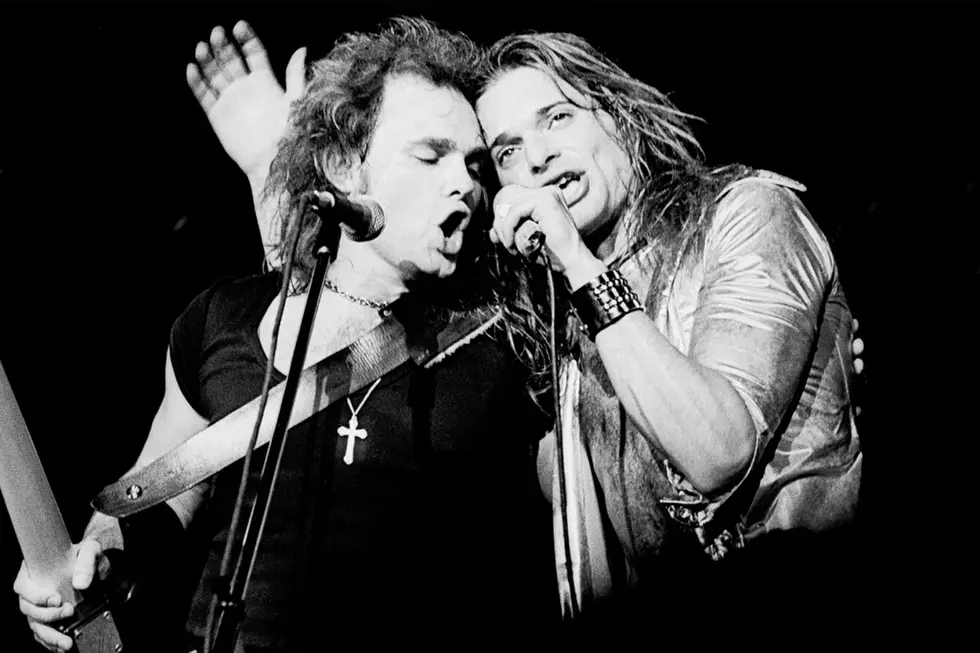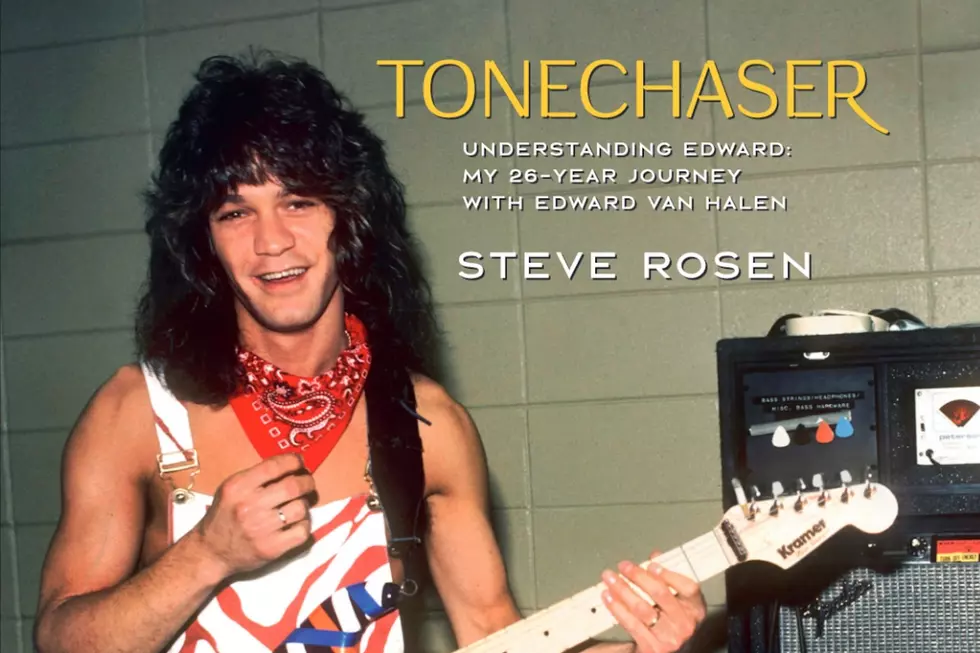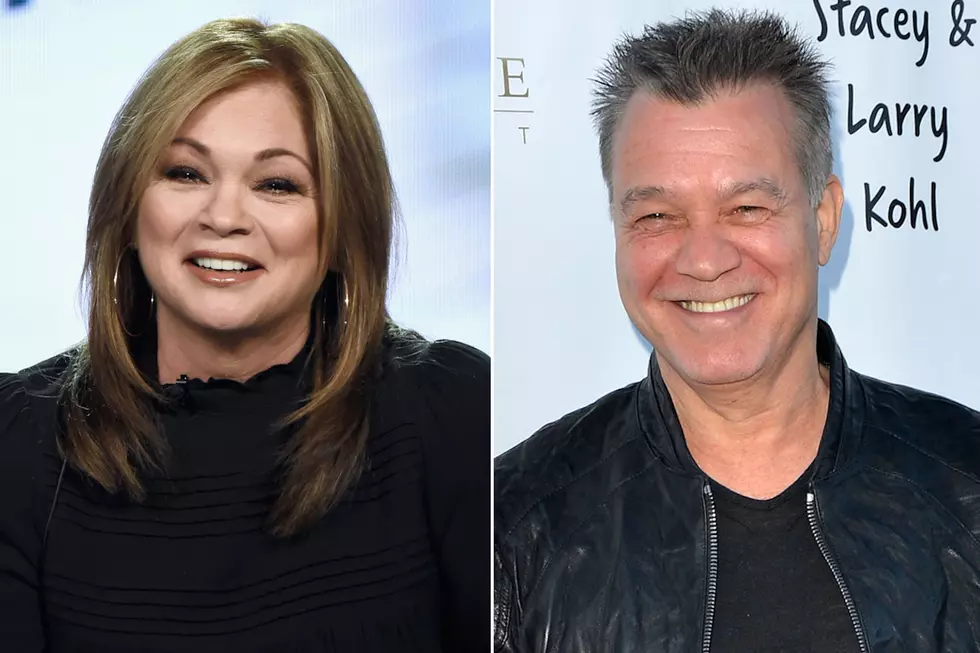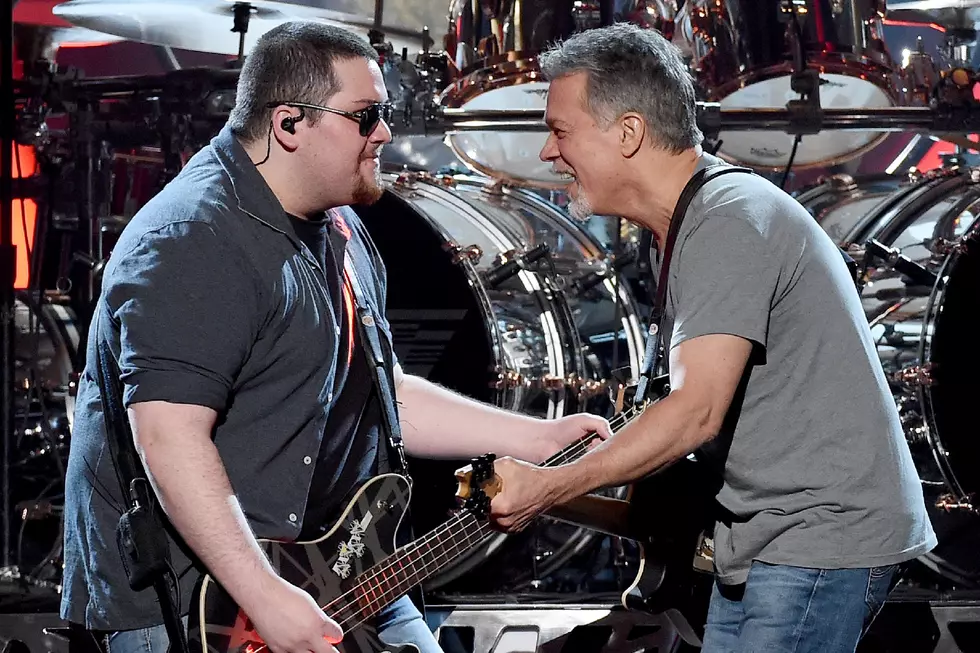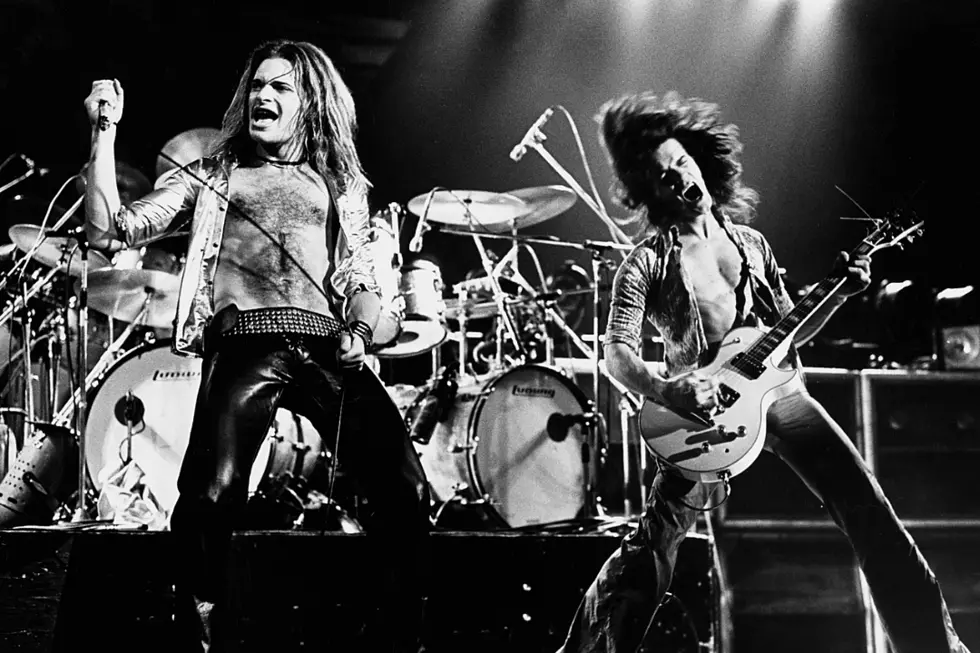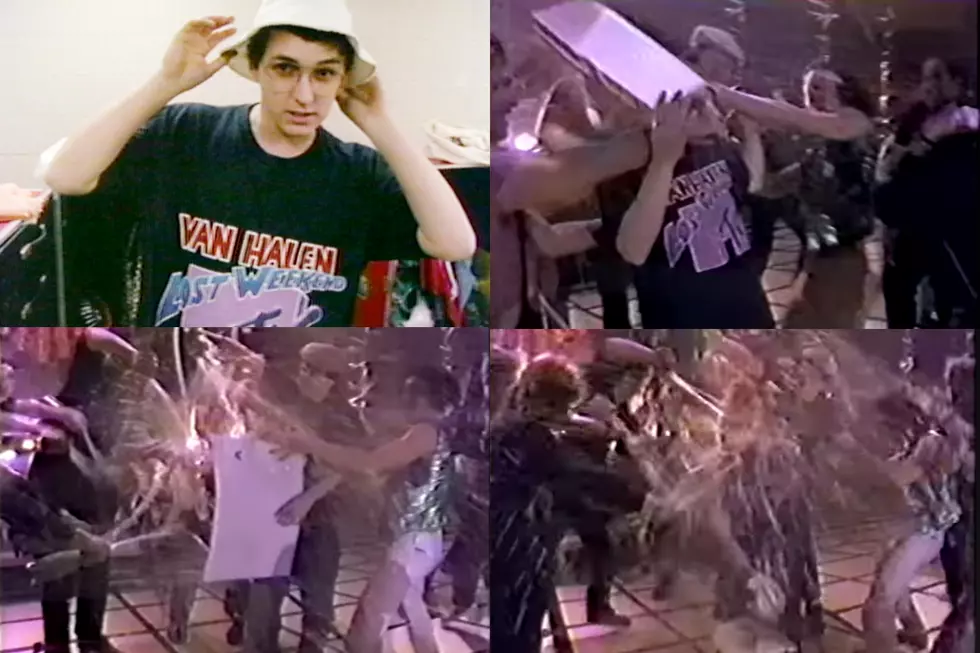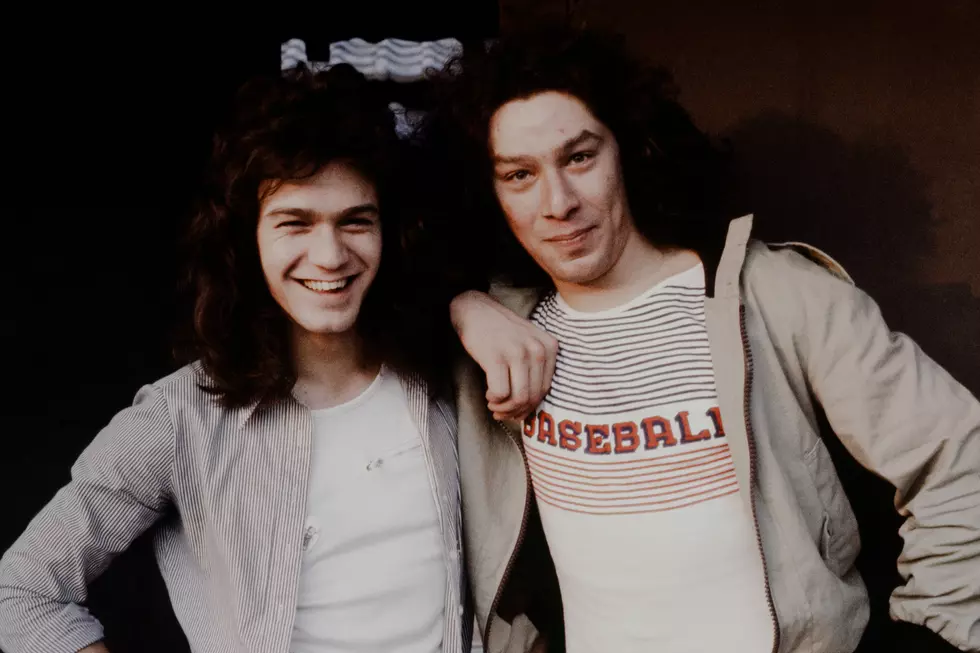
Why ‘Balance’ Didn’t Seem Like Van Halen’s Last Sammy Hagar Album
"Every time we start a record, it's like I've never made one before. Every time is like the first time."
That's how Eddie Van Halen described the feeling of getting his band's ball rolling on their 10th studio LP. Under ordinary circumstances, that quote might have sounded like false modesty from a guitar god, but when Balance arrived in record stores on Jan. 24, 1995, it did seem a little like Van Halen were starting over. Since they'd last surfaced with For Unlawful Carnal Knowledge in 1991, the sound of mainstream rock radio had changed a great deal.
Not that they'd admit to caring about trends. "We've always been true to ourselves and made the best possible music we can make," Eddie explained to Total Guitar. "I think if music has some kind of emotion to it and it gives you a vibe, say a song like – obvious example – Led Zeppelin's 'Stairway To Heaven.' It gave you a vibe 15 years ago and it gives you a vibe now because emotion is timeless. You know what I mean? A good song is timeless. It doesn't matter whether it's trendy or hip right now or not. If a song is good and it makes you feel something, that's it."
"Van Halen has always just done our thing, taking it wherever we could, without changing because of what was on the radio," he told Guitar International. "We got signed during punk and disco, and it’s the same thing now, only with rap and grunge. But we’re not changing. I’ve never changed the way I write; I play what I like."
That may have been true, but the darker sound that predominated the hit records of the day couldn't help but seep into Balance in the end. Eddie later joked that every song on the album was written in D minor – and the record's first single, "Don't Tell Me (What Love Can Do)," contrasted grinding verses with huge choruses just as enthusiastically as any hot Seattle band of the era.
"I loved that song, but man, it was dark. That song did nothing for Van Halen," singer Sammy Hagar mused in a later interview with the A.V. Club. "The record was big. We always sold 4 or 5 million records no matter what we did. But that song didn’t take us anywhere, and I know why now. It wasn’t what Van Halen fans wanted. It showed the darkness of Van Halen, and basically the end of the band."
For all the time it took to get the songs written and ready to record, the actual time spent in the studio flew by for Van Halen. "It was the quickest record we ever made – four months in the studio," Eddie later recalled. "It's the quickest we've ever done a record, outside of the very first one."
Part of that speed was owed to producer Bruce Fairbairn, who gave the band what Eddie called an "outside ear" and encouraged a different approach to the Van Halen formula. "It's just someone else's outside opinion that makes you look at your own material in a different way – which is interesting. In the very beginning, I was a little nervous around him, a little intimidated, I guess," shrugged Eddie. "He's just a normal guy, but at the same time he's worked with a lot of great people and I wanted to show him that I'm good too."
Listen to Van Halen Perform 'Can't Stop Lovin' You'
Complicating Eddie's efforts was the fact that he was trying to sever his long relationship with alcohol. "I played a lot of stuff sober, which really weirded me out. It took me a while to get into it without the help of the alcohol," he told Guitar World. "Sometimes, I would listen back to something and go, 'Ooh, that's stiff. Let me redo that,' but I didn't drink too much. When we made the last record, I had at least 12 to 15 beers in me each day. This time, nobody but me drank while we were working. And if I got a little bit overboard, I'd say 'I’m out of here, I'm too far gone,' and call it a day."
Whatever internal struggles or changing trends might have altered Van Halen's trajectory during the months leading up to the album's release, Balance still found an enthusiastic reception when it arrived, debuting at the top of the charts – extending a streak of No. 1 studio albums that reached back to 1986's 5150.
The project ultimately sold three million copies, while spinning off five Top 40 singles on the Mainstream Rock chart, one of which – "Can't Stop Lovin' You" – was also a pop hit. While Van Halen seemed to have lost a bit of the crossover touch it enjoyed during the '80s and early '90s, Balance reaffirmed their position in the rock firmament. On the surface, it also looked like the band members were working together as well as ever.
"Balance is a slice of our life. We hope it does to you what it did to us when we listened back to the record," Alex Van Halen told Album Network magazine. "I think one of the criteria whether (or not) you think it's a good record is 'Are you still moved by it?' Balance does it for me."
Of course, as we now know, by the time Balance was released, the relationship between Sammy Hagar and Eddie Van Halen had deteriorated considerably, and roughly a year later, the group was shopping for a new lead singer. This began a long and turbulent period marked with silences, abortive reunions with Hagar and David Lee Roth and an album with Extreme singer Gary Cherone in the lineup.
At the time, however, Balance looked like just another hit from a band seemingly destined to keep on churning them out for decades. "This is the greatest record we've made in a long time. ... I think this is one of the best records we've made," Eddie proclaimed, before declaring what would end up being one of the last hopeful notes of the Hagar era: "There's still so much more to do."
Meet the New Boss: Rock's Replacement Singers
Gallery Credit: Nick DeRiso
Think You Know Sammy Hagar?
More From Ultimate Classic Rock
